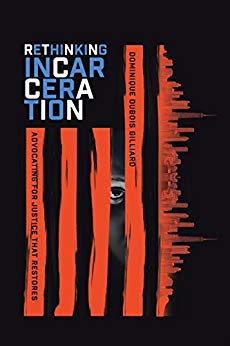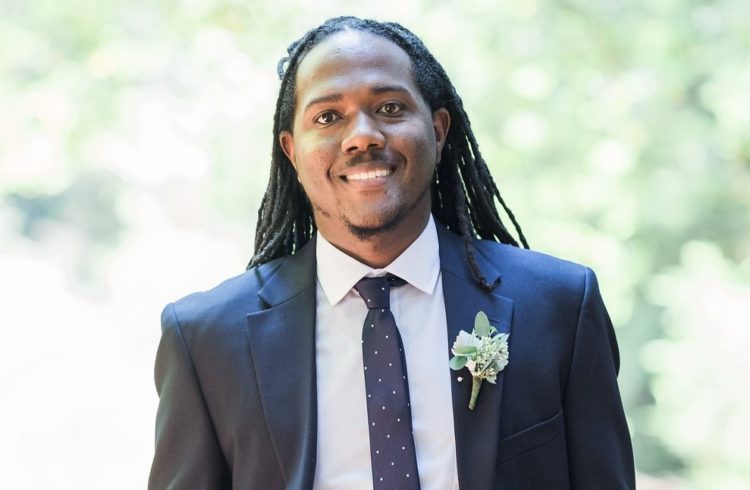
This Week on Seminary Dropout…
Dominique DuBois Gilliard is the director of racial righteousness and reconciliation for the Love Mercy Do Justice (LMDJ) initiative of the Evangelical Covenant Church (ECC). He serves on the board of directors for the Christian Community Development Association and Evangelicals for Justice. In 2015, he was selected as one of the ECC’s “40 Under 40” leaders to watch, and the Huffington Post named him one of the “Black Christian Leaders Changing the World.” An ordained minister, Gilliard has served in pastoral ministry in Atlanta, Chicago, and Oakland. He was executive pastor of New Hope Covenant Church in Oakland, California and also served in Oakland as the associate pastor of Convergence Covenant Church. He was also the campus minister at North Park University and the racial righteousness director for ECC’s ministry initiatives in the Pacific Southwest Conference. With articles published in the CCDA Theology Journal, The Covenant Quarterly, and Sojourners, Gilliard has also blogged for Christianity Today, Faith & Leadership, Red Letter Christians, Do Justice, and The Junia Project. He earned a bachelor’s degree in African American Studies from Georgia State University and a master’s degree in history from East Tennessee State University, with an emphasis on race, gender, and class in the United States. He also earned an MDiv from North Park Seminary, where he served as an adjunct professor teaching Christian ethics, theology, and reconciliation.

The United States has more people locked up in jails, prisons, and detention centers than any other country in the history of the world. Mass incarceration has become a lucrative industry, and the criminal justice system is plagued with bias and unjust practices. And the church has unwittingly contributed to the problem.
Dominique Gilliard explores the history and foundation of mass incarceration, examining Christianity’s role in its evolution and expansion. He then shows how Christians can pursue justice that restores and reconciles, offering creative solutions and highlighting innovative interventions.
The church has the power to help transform our criminal justice system. Discover how you can participate in the restorative justice needed to bring authentic rehabilitation, lasting transformation, and healthy reintegration to this broken system.-From the Publisher


Missio Alliance Comment Policy
The Missio Alliance Writing Collectives exist as a ministry of writing to resource theological practitioners for mission. From our Leading Voices to our regular Writing Team and those invited to publish with us as Community Voices, we are creating a space for thoughtful engagement of critical issues and questions facing the North American Church in God’s mission. This sort of thoughtful engagement is something that we seek to engender not only in our publishing, but in conversations that unfold as a result in the comment section of our articles.
Unfortunately, because of the relational distance introduced by online communication, “thoughtful engagement” and “comment sections” seldom go hand in hand. At the same time, censorship of comments by those who disagree with points made by authors, whose anger or limited perspective taints their words, or who simply feel the need to express their own opinion on a topic without any meaningful engagement with the article or comment in question can mask an important window into the true state of Christian discourse. As such, Missio Alliance sets forth the following suggestions for those who wish to engage in conversation around our writing:
1. Seek to understand the author’s intent.
If you disagree with something the an author said, consider framing your response as, “I hear you as saying _________. Am I understanding you correctly? If so, here’s why I disagree. _____________.
2. Seek to make your own voice heard.
We deeply desire and value the voice and perspective of our readers. However you may react to an article we publish or a fellow commenter, we encourage you to set forth that reaction is the most constructive way possible. Use your voice and perspective to move conversation forward rather than shut it down.
3. Share your story.
One of our favorite tenants is that “an enemy is someone whose story we haven’t heard.” Very often disagreements and rants are the result of people talking past rather than to one another. Everyone’s perspective is intimately bound up with their own stories – their contexts and experiences. We encourage you to couch your comments in whatever aspect of your own story might help others understand where you are coming from.
In view of those suggestions for shaping conversation on our site and in an effort to curate a hospitable space of open conversation, Missio Alliance may delete comments and/or ban users who show no regard for constructive engagement, especially those whose comments are easily construed as trolling, threatening, or abusive.